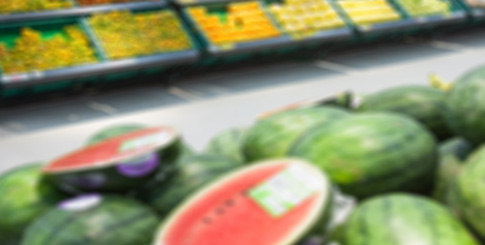Supply, Demand, and Innovation
The threat to supermarkets is not just about prices and margins. “Amazon and Whole Foods are taking volume from existing retailers, which is affecting their overall profitability,” contends Steve Grinstead, founder of the Grinstead Group in Plano, TX, north of Dallas. “The challenge with bricks-and-mortar is the fixed costs, and even a small percentage loss of sales has a disproportionate negative impact on the bottom line.”
Losses, of course, will reverberate throughout the supply chain. “If Amazon is forcing supermarkets to reduce prices, that reduces their margins,” Peterson points out. “The only place to turn is to the suppliers. Amazon can say, lower your prices or we won’t do business with you.”
“Amazon’s main impact on suppliers will be in the area of trade relations, for example, increased demands for better prices, more deliveries that arrive on time, more online-friendly packaging, etc.,” agrees Bishop. This has already proven true, with Walmart instituting new delivery requirements and fees for late arrivals.
“The supply chain [must] get more efficient, and you didn’t need the deal with Whole Foods to make this a true statement,” McLaughlin points out. “Supermarkets will have to dramatically reduce costs so they can invest in growing their business—this means radically lower costs and increased efficiencies, and innovation in the supply chain is one area where this can be done.”
Examples of such innovation could include reviewing the number and location of warehouses to streamline deliveries, creating partnerships to decrease overall shipments and deliveries, or even better onsite temperature management to reduce the possibility of spoilage.
Demand champions
Peterson believes smaller produce suppliers may be well positioned to succeed, even in this intense world of price pressures. “Smaller suppliers can succeed if they play in an area where demand is greater than supply,” he says. “These are the areas where their profitability will be protected.” He cites organic produce as one, and the strong demand for local/seasonal fruits and vegetables as another.
Larkin thinks independent grocers have similar advantages in a price-driven market. “Independent supermarkets are uniquely positioned to effectively compete in the marketplace,” he suggests, noting that most are flexible, have strong relationships with local growers, know their customers, and can quickly react to market changes.
“I like to say they’re the entrepreneurs of the industry,” Larkin continues. “They’re already responding to changes in how consumers shop and are doing it very effectively.”



